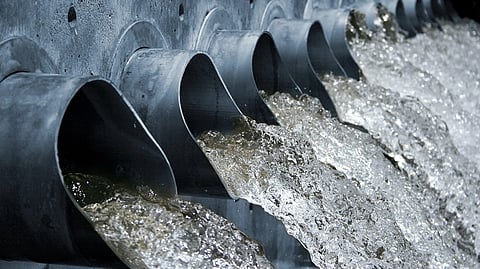IISc. researchers have nano solution for wastewater treatment
Researchers in the Indian Institute of Science’s (IISc.) have developed a novel nanocomposite material for improved wastewater treatment.
A team of the Interdisciplinary Centre for Water Research (ICWaR) in the IISc., led by Praveen C. Ramamurthy, has developed a metal organic framework (MoF) nanocomposite by intercalating the properties of graphene oxide and UiO-66-NDC.
Heavy metals
According to IISc., industrial effluents containing heavy metals have polluted our water sources for decades. Lead, a heavy metal commonly found in discharge from paint and battery manufacturing plants, is a major water pollutant whose presence severely affects human and animal health.
In recent years, scientists have turned to nanotechnology to develop absorbent materials that can remove heavy metals for improved wastewater treatment.
However, existing adsorption materials and technologies are expensive, and their applications are limited by where they can be implemented and how efficiently they can adsorb lead. This demands the development of novel, low-cost and structurally stable composite materials for wastewater treatment. To this end, ICWaR researchers have developed a novel nanocomposite material.
The researchers have demonstrated that the new nanocomposite can adsorb lead (Pb) from simulated wastewater systems.
Four-fold capacity to absorb lead ions from wastewater
The team demonstrated that the newly developed MOF nanocomposite adsorbent has approximately four-fold enhanced capability in removing lead ions from wastewater compared to previously reported studies of graphene oxide. The material exhibits a stable crystalline structure. Modelling and simulation results also support enhanced efficiency in lead adsorption due to the adsorbent molecular architecture.
The new nanocomposite has improved adsorption and high regeneration and reusability capacities, making it an effective tool in the wastewater treatment of lead ions.

